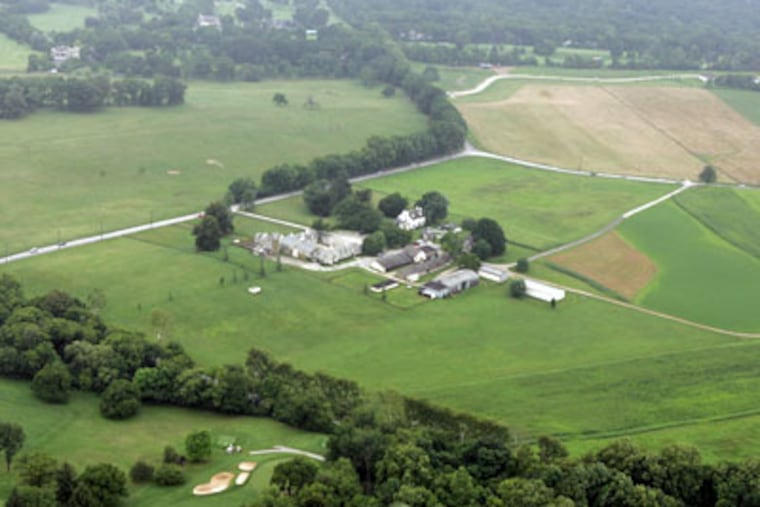Editorial: Properly preserved
The extraordinary thing about the deal sealed this week to preserve 400-plus acres of countryside just outside Philadelphia's Chestnut Hill - apart from its salvation having occurred at all - is that these stunning meadows, streams, and fields will be within such easy reach of so many visitors.

The extraordinary thing about the deal sealed this week to preserve 400-plus acres of countryside just outside Philadelphia's Chestnut Hill - apart from its salvation having occurred at all - is that these stunning meadows, streams, and fields will be within such easy reach of so many visitors.
By car, SEPTA bus, and - one day - even within a brief stroll of Northwestern Avenue and several nearby Montgomery County communities, future generations of city and suburban residents will be able to enjoy a tract of prime farmland that dates to William Penn's time.
So, preservation of the gentleman's farm owned by the late philanthropist and Widener heir F. Eugene "Fitz" Dixon Jr. represents a huge public triumph.
In the works for eight years, the 10-way, multimillion-dollar arrangement was made possible, first and foremost, by the generous willingness of the Dixon family to resist selling out to the highest bidder.
If any tract in the Philadelphia region was tailor-made for the latest McMansion invasion, the Dixons' Erdenheim Farm met all the criteria. It's surrounded by suburban sprawl and borders the city's leafiest neighborhoods, so the farm held out the promise of substantial riches from its development for housing or other uses.
Dating back to before Dixon's 2006 death, though, the family worked with county and local officials and preservation activists to save most of the farm.
Only about 50 acres were sold off - to build a retirement community. But that deal paved the way for creating the Whitemarsh Foundation, chaired by Hugh G. Moulton, which spearheaded a successful fund-raising effort to save the bulk of the land.
All told, the foundation raised $26 million from county and local government grants and tax revenues to save nearly half the farm. The Natural Lands Trust - willed the rights by the Widener family to preserve a swath of the farm - worked in partnership with Moulton's group.
Along the way, federal officials helped out by directing $5 million toward the project from an environmental mishap settlement. The funds came from Merck & Co. as recompense for its chemical spill and Wissahickon Creek fish kill in 2006.
Finally, the intervention of another family - Radnor executive Peter McCausland and his wife, Bonnie - secured other acreage, where the couple plan to make their home and preserve a farm now dotted with cattle and sheep.
Both the city and Montgomery County will be far better off for preserving such a beautiful stretch of open space, which will be accessible to all via new trails. Kudos to all who turned this lush landscape into a public treasure.